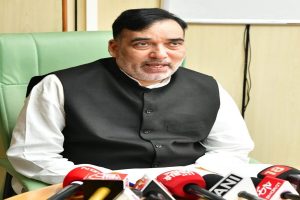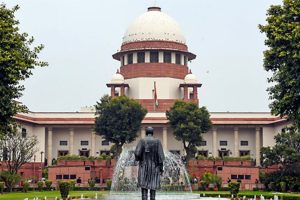In a surprise move the government announced holding of the Shanghai Cooperation Organization (SCO) summit on 4 July in virtual mode, and to be chaired by Prime Minister Modi. No justification was given by the MEA. It was assumed that the summit this year would be an inperson event attended by all heads of state of the organisation, including Vladimir Putin of Russia, Xi Jinping of China and Shehbaz Sharif of Pakistan, amongst others.
Senior government representatives had been regularly mentioning the event with pride. Invitations had already been sent and accepted. The SCO is a China-dominated organisation comprising the Central Asian Republics (CAR), namely Kazakhstan, Kyrgyzstan, Tajikistan and Uzbekistan, besides India, Pakistan, Russia and China. Iran, Belarus and Mongolia are observer states and as per tradition, Turkmenistan is a guest of the chair.
The last summit in September 2022 was an in-person event conducted in Samarkand, Uzbekistan. Scheduling could not have been a reason as the Indian invite was already accepted by all, though India had initially proposed 25 June as the date.
The last major event of the SCO was the foreign ministers’ meeting in Goa early last month which was attended by all members. It set the agenda for the leaders’ summit. The decision, though surprising, would have been arrived at after detailed consideration and was intended to send specific messages. With no formal reason being provided by the MEA, speculation is rife.
Pakistan’s Dawn newspaper stated in an editorial, “Delhi may have had second thoughts about hosting the Russian, Chinese and Pakistani leaders in person,” adding, “moving the SCO summit online may be a subtle snub targeted at Xi Jinping,” implying retaliation against China for non-resolution of the border issue.
These views would be incorrect as both Putin and Xi have confirmed their attendance for the G20 summit in New Delhi in September this year. Further, PM Modi will be in South Africa alongside his counterparts from Russia and China for the BRICS summit scheduled for 22-24 August. The three nations are also members of RIC (Russia, India, China grouping) which could meet later this year in Russia, though India has hinted it may not attend, due to ongoing tensions with China.
Hence, Russian foreign minister Sergei Lavrov, stated on the sidelines of the Goa summit that he hoped India and China would resolve their differences. As far as the Pakistani PM is concerned, Dawn believes his reception would be ‘cold’ similar to what Bilawal Bhutto-Zardari received in Goa.
India was inducted into the SCO at the insistence of Russia as a counterweight to China in 2017. Other reasons guiding the Indian decision included the SCO cooperating on the situation then in Afghanistan, connectivity with Central Asia, counterterrorism, anti-narcotic initiatives and energy cooperation. India remains the only true democratic nation within the organisation, all others being quasi democracies or authoritarian regimes; this gives the SCO some form of credibility.
The SCO also provides India a platform to engage with CAR nations and continuously raise its concerns on cross-border terrorism and radicalisation. No bilateral issues are discussed in the forum, hence India raising terrorism has to be in the broader sense. India leaving the grouping would open doors for its exploitation by Pakistan and China, especially in the current environment where Moscow is playing second fiddle to Beijing. With Russia, Iran and China participating in the SCO, statements by leaders in any discussion would be anti-American and would back the Russian invasion of Ukraine.
A neutral summit declaration emerging at the end appears unlikely. India, which is shifting its alignment towards the west and is part of most anti-China groupings, would not desire this. A biased statement would not bode well for the forthcoming G20 summit. In a virtual summit, a declaration need not be issued. This suits India well.
There was also a perception that holding it in the virtual format would avoid repeated visits of Putin and Xi to Delhi. This may not be true as both leaders were aware and declared willingness to attend both events.
Russia, since the Ukraine invasion stalled, needs support from China and hence has been displaying a neutral stance between Beijing and Delhi, reducing Indo-Russian proximity. Further, in the event of a PutinModi bilateral on the sidelines of the SCO summit, the West would expect a harsh statement from India on the Ukraine conflict, which may not be forthcoming.
More importantly, the SCO is a China-dominated organisation, as almost all members are part of the BRI and beholden to China. Beijing had organized a China-Central Asian Nations summit to coincide with the G7 meet in Hiroshima; this was aimed at boosting its investments in the region while enhancing its influence. Pakistan and Iran are already Chinese allies.
By moving the SCO summit to a virtual mode, India is sending out a message that groupings dominated by China are no longer New Delhi’s priority. There were also doubts on whether Pakistan PM Shehbaz Sharif and Chinese President Xi Jinping could drop out at the last moment as retaliation for India conducting G20 events in locations objected to by both nations.
Such a decision would impact the success of the summit and could be exploited by the opposition in India. By moving it into virtual mode, this possibility has been bypassed. Not attending the G20 summit later this year by the Chinese president would have no major impact. In fact, it could also be a boon. India is aware that within the SCO it can never be a dominant member and hence has decided not to give it undue importance.
It also sends a signal that its priority is the G20. It further implies that India is seeking to project itself as a leader of the global south challenging China. With Delhi also hinting at skipping the RIC meet in Moscow, the message is evident. India will avoid interacting with the Chinese leadership unless the LAC reverts to normalcy. By not providing any formal reason for the change of format for the SCO summit, the MEA has conveyed the right message.
(The writer is a retired Major General of the Indian Army.)












